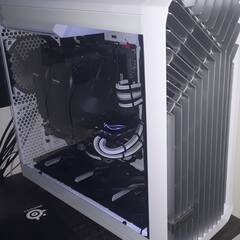Memory overclocking and stress test questions
-
Topics
-
0
-
0
-
rayu ·
Posted in New Builds and Planning0 -
Ordinaal ·
Posted in New Builds and Planning2 -
sumgreenday ·
Posted in Displays7 -
5
-
1
-
avg boywithuke fan ·
Posted in Troubleshooting0 -
11
-
NetanelC ·
Posted in Troubleshooting1
-

















Create an account or sign in to comment
You need to be a member in order to leave a comment
Create an account
Sign up for a new account in our community. It's easy!
Register a new accountSign in
Already have an account? Sign in here.
Sign In Now